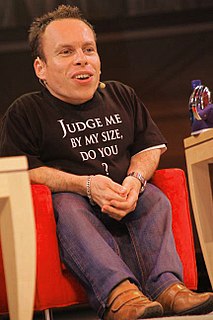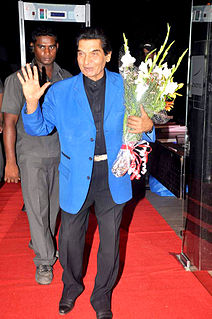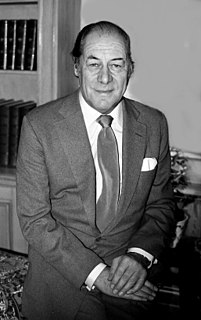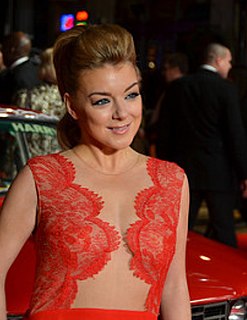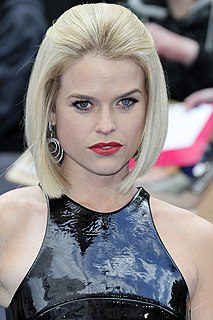A Quote by Warwick Davis
As a film actor, you don't often get that opportunity to meet with your audience and take your applause on stage.
Related Quotes
I always had something to think about or draw from, which as an actor is a gift. The beautiful thing about film is that it gets so much closer than stage. I love stage and that's what I started doing and it's a beautiful art form in of itself, but in film you can move your eyes to the side and somehow the audience can fill in the blanks of what you're thinking.
Applause is an instinctive, unconscious act expressing the sympathy between actors and audience. Just as our art demands more instinct than intellect in its exercise, so we demand of those who watch us an apppreciation of the simple unconscious kind which finds an outlet in clapping rather than the cold intellectual approval which would self-consciously think applause derogatory. I have yet to meet the actor who was sincere in saying that he disliked applause.
Acting is bad acting if the actor himself gets emotional in the act of making the audience cry. The object is to make the audience cry, but not cry yourself. The emotion has to be inside the actor, not outside. If you stand there weeping and wailing, all your emotions will go down your shirt and nothing will go out to your audience. Audience control is really about the actor
In film, the camera can get an array of shots so the audience can see the emotion the character is giving off. Using close-ups on the character's face really helps get the message across. On stage, you can't do that. But the stage has that live feeling that you can't get anywhere else because the audience is right there.
In film, the camera can get an array of shots so the audience can see the emotion the character is giving off. Using close-ups on the characters face really helps get the message across. On stage, you cant do that. But the stage has that live feeling that you cant get anywhere else because the audience is right there.
In the theater, you're so much more in charge as an actor. For better or for worse, you know what the audience is seeing. But you can be acting your socks off on film, and then you see the movie, and the camera is on the other actor, or they've cut out the lines you thought were significant, or they've adjusted the plot. So much of it is out of your control.
I think the power of the short film is incredibly underrated. It is way easier to get someone to watch a 15-minute film then a full-length feature. In those 15 minutes you have the opportunity to express your voice as an artist and hopefully connect with your audience. If you are trying to be a first time feature director then a short film that demonstrates you have a grasp on the themes and concepts of the movie you want to direct is a no-brainer. Whether they are collaborators or potential investors, filmmaking is a visual art form so you obviously need visuals to show them!
The big difference I think between tv and stage is definitely the immediate buzz that you get. And that's not just as an actor, as an audience member you're getting the chance to have this kind of two-way process where the actors and the audience are experiencing the same thing. With tv you often have to wait months and months down the line to actually get the pay-off. Whereas with theatre it's a very immediate thing.
